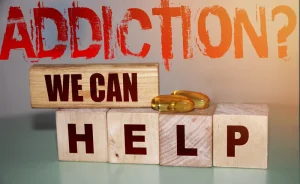
Most parts of your body have pain sensors at one end of these sensory nerves. Without them, you wouldn’t move your hand away – very quickly – from a burning flame, can you get addicted to ibuprofen or seek help if you had tummy ache. Motor nerves carry messages from your brain telling each muscle to move – while sensory nerves carry messages back from your skin, limbs and body organs, telling your spine and brain about touch, heat and pain.
Connection Between Ibuprofen Misuse and Addiction to Other Substances

They can also help them through the detox and withdrawal process, which can be challenging to handle on their own. When taken appropriately, ibuprofen is typically considered a safe and effective medication. If you’re worried about misusing it, make sure to follow the instructions on the label (if you’re getting it over the counter) or the dosage guide and directions from your doctor. An example of misusing ibuprofen would be taking this drug proactively or as a preventative measure. People who get used to taking it in this way may be more likely to develop an addiction over time as it becomes part of their daily habits.

Strategies for Overcoming Ibuprofen Dependency

Rather than discharging the patient, provide the patient with a 1-day supply of medication with the provision that they return to the clinic the next morning before taking their medication. Observe the patient taking the medication and obtain UDT 4 hours after this dose to absolutely confirm the accuracy of the UDT. If the treating physician decides to continue prescribing opiates, the patient can be asked to identify an “approved” support person to safeguard the medication. A skilled nurse or midlevel provider can interview the support person to determine his https://ecosoberhouse.com/ or her appropriateness for this role. In the quest for pain relief, many people turn to over-the-counter medications, with ibuprofen being one of the most common options.
Recovery from Ibuprofen Addiction

They can help you manage your withdrawal symptoms and provide support during the recovery process. Withdrawal from Ibuprofen addiction can be uncomfortable, but it is a necessary step towards recovery and improved health. Postponing treatment for an addiction to ibuprofen can lead to severe mental and physical health complications that grow increasingly challenging over time. Should you or someone close to you exhibit these warning signs of dependency on this medication, professional help must be sought immediately to avoid damage and initiate recovery efforts. It’s essential to know when to seek expert assistance if you’re struggling with an addiction to ibuprofen. When a person takes the drug in doses that exceed the recommended amounts or continues their use beyond the advised duration, it becomes particularly critical to get help.
- Studies in women suggest that this medication poses minimal risk to the infant when used during breastfeeding.
- An example of misusing ibuprofen would be taking this drug proactively or as a preventative measure.
- These will vary per person because factors such as age, size, weight and general health play a part as well as the amounts taken and possible interaction with other drugs.
International Patients
They have a noncontributory family history with respect to SUDs and lack major or untreated psychopathology. This group clearly represents the majority of patients who will present to the PCP. Continuing opioid therapy should be determined, in part, by improvement in function after opioids have been prescribed or dosage increased. Function can be assessed utilizing the Brief Pain Inventory,38 the 6-minute walk test,39 or other patient self-reporting methods. If your dose is different, do not change it unless your doctor tells you to do so. Using this medicine with any of the following medicines is usually not recommended, but may be required in some cases.
Ibuprofen Addiction: Seeing the Risks and Seeking Help
John C. Umhau, MD, MPH, CPE is board-certified in addiction medicine and preventative medicine. For over 20 years Dr. Umhau was a senior clinical investigator at the National Institute on Alcohol Abuse and Alcoholism of the National Institutes of Health (NIH). Overall health and medications may influence whether avoiding caffeine entirely is best. Withdrawal symptoms can start within 12 hours and last two to seven days or longer.
The participant was a 58-year-old, Black female of Haitian descent, living with HIV. Upon screening, the participant met criteria for both DSM-IV NSAID dependence, as well as criteria for DSM-5 moderate NSAID use disorder based on an assessment using the Mini International Neuropsychiatric Interview (MINI) (Sheehan et al., 1998). In response to the initial MINI prompt, used to assess past-year drug use, the participant reported using an NSAID more than once in the past 12 months “to get high, to feel elated, to get a ‘buzz,’ or to change her mood” (Sheehan et al., 1998).
